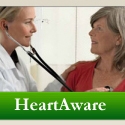Citas
Llame o haga clic para programar una consulta virtual o en persona.
Llámenos al
305-243-5554
O
La presión arterial es la fuerza con la que la sangre empuja contra las paredes de las arterias generada con cada latido del corazón a medida que la sangre se bombea desde el corazón a los vasos sanguíneos. El tamaño y la elasticidad de las paredes arteriales también afectan la presión arterial. Cada vez que late el corazón, se crea presión dentro de las arterias. Es mayor cuando la sangre sale del corazón hacia las arterias (sístole). Cuando el corazón se relaja entre latidos para volver a llenarse, la presión baja en las arterias (diástole).
La hipertensión se controla en nuestro University of Miami Comprehensive Hypertension Center.
Pruebas
Lectura de la presión arterial
Para medirse la presión arterial, el médico o un especialista le colocará, por lo general, un brazalete inflable alrededor del brazo y le medirá la presión arterial con un manómetro. Se lee en milímetros de mercurio (mmHg), y mide dos números: las presiones sistólica y diastólica. Se considera que la presión arterial normal está por debajo de 120/80 mmHg. La hipertensión en etapa 1 se define como una presión sistólica de 140 a 159 mmHg o una presión diastólica que varía de 90 a 99 mmHg. La hipertensión en etapa 2, más grave, es una presión sistólica de 160 mmHg o más o una presión diastólica de 100 mm Hg o más. Es importante verificar cualquier lectura con repetición de mediciones a lo largo del tiempo y en ambos brazos.
Monitoreo de presión arterial ambulatorio
El médico puede sugerir este monitoreo de la presión arterial las 24 horas para proporcionar una imagen más precisa de los cambios de presión arterial durante un día y una noche promedio.
Análisis de orina
Un análisis de orina puede detectar sustancias en su cuerpo que indiquen una enfermedad cardíaca.
Análisis de sangre
Una prueba de colesterol y otros análisis de sangre pueden indicar problemas cardíacos y problemas con los riñones, órganos que pueden soportar la peor parte de la hipertensión prolongada.
Electrocardiograma (ECG)
Esta prueba mide la actividad eléctrica del corazón. El médico también puede recomendar pruebas adicionales, como un ecocardiograma, para detectar más signos de enfermedad cardíaca.
Tratamientos
Modificaciones del estilo de vida
Las investigaciones han demostrado que factores como el sobrepeso, el tabaquismo, una dieta alta en sal y grasas, y el estrés contribuyen a la hipertensión arterial. Junto con otros tipos de control, cambiar esos hábitos puede ayudar a bajar la presión arterial y prevenir más problemas cardíacos.
Medicamentos
Varios tipos diferentes de medicamentos pueden ser útiles para controlar la presión arterial alta. A menudo, se necesita más de un tipo para obtener un control efectivo:
- Los bloqueadores de los canales de calcio actúan al retardar el movimiento del calcio hacia las células del corazón y las paredes de los vasos sanguíneos, lo que facilita que el corazón bombee y se ensanchen los vasos sanguíneos.
- De manera similar, los inhibidores de la enzima convertidora de la angiotensina (ECA) producen el ensanchamiento o la dilatación de los vasos sanguíneos para mejorar la cantidad de sangre que bombea el corazón y reducir la presión arterial.
- Los antagonistas de los receptores de la angiotensina II, ARA II tienen los mismos efectos que los inhibidores de la ECA, pero funcionan mediante un mecanismo diferente.
- Los diuréticos (píldoras contra la retención de líquidos) ayudan a su cuerpo a eliminar el agua y la sal innecesarias a través de la orina para reducir la presión arterial y pueden facilitar el bombeo de su corazón.
- Los betabloqueantes bloquean los efectos del sistema nervioso simpático en el corazón.
- Por último, los suplementos de aceite de pescado con Omega-3 tienen beneficios para las personas sanas y las personas con hipertensión y enfermedades del corazón por igual.
¿Por qué debe elegir UHealth?
El University of Miami Comprehensive Hypertension Center es el único centro integral certificado por la Asociación Estadounidense del Corazón (American Heart Association en Florida. Casi uno de cada dos adultos tiene hipertensión y solo una de cada cuatro personas tiene la presión arterial controlada. Nuestro equipo ofrece un proceso altamente efectivo para evaluar el riesgo cardiovascular de los pacientes y establecer un plan de diagnóstico y tratamiento oportuno y específico.
Terapias avanzadas para la insuficiencia cardíaca. Los tratamientos de vanguardia incluyen dispositivos de asistencia ventricular y trasplante de corazón. Para la enfermedad cardíaca avanzada, las opciones de tratamiento van más allá de lo que está disponible en la comunidad para prolongar la vida y brindarle a usted o a su ser querido una segunda oportunidad.
Atención multidisciplinaria por especialistas reconocidos en su campo. En casos complejos, la atención de enfermedades cardíacas puede requerir los servicios de un cirujano cardiotorácico, un cardiólogo intervencionista, un especialista en pulmones, un especialista en diabetes y un genetista. Los médicos se comunican entre sí y se aseguran de que todas las especialidades implicadas en su atención sigan un plan de tratamiento unificado.
HeartAware: evaluaciones en línea gratuitas de los riesgos para la salud que pueden salvarle la vida

Más de 80 millones de adultos estadounidenses (más de uno de cada tres) padecen enfermedades cardiovasculares. Casi 2,300 estadounidenses mueren de enfermedades cardiovasculares todos los días, es decir, una muerte cada 38 segundos. Este número se puede reducir significativamente mediante la educación y la detección temprana.